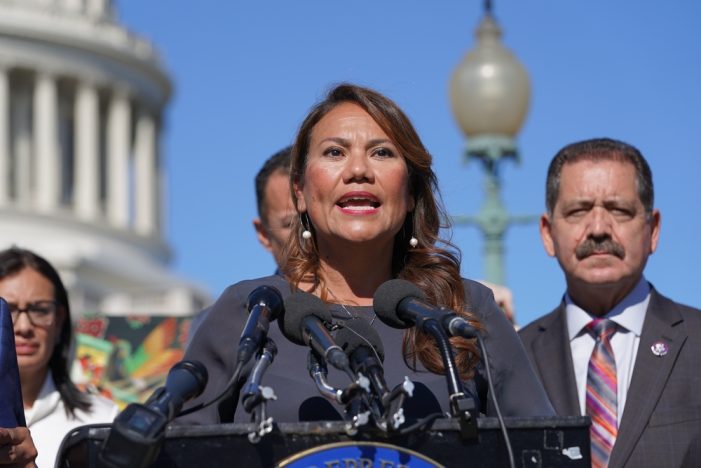| Editorial credit: Phil Pasquini / shutterstock.com | Photo of Congresswoman Veronica Escobar
WASHINGTON, D.C. — FWD.us President Todd Schulte issued the following statement today after Congresswoman Veronica Escobar (D-TX-16) and Maria Elvira Salazar (R-FL-27) reintroduced the bipartisan American Families United Act (AFUA).
The bill would help families facing separation by granting immigration judges and officials the authority to weigh the impact that family separation would have on a U.S. citizen if their undocumented spouse or child were denied a visa or received a deportation order, and to grant these families relief, case by case. |
|
| “Legislation like the American Families United Act would provide much-needed and overdue relief to hundreds of thousands of American families across the country, many of whom have built lives together for decades.
These are mothers and fathers who have been forced to navigate a failed and outdated immigration system that has not allowed them to adjust their status even if they are married to a U.S. citizen. FWD.us estimates that up to 1.2 million undocumented individuals in the United States, of whom 110,000 are DACA recipients, could obtain a green card under the AFUA through their U.S. citizen spouse. Thousands more spouses of U.S. citizens are already separated, prohibited from living in the United States, and waiting for a resolution in their immigration case.
“We thank Representatives Escobar and Salazar for reintroducing this bill, which would keep families together and allow these families to bring even more benefit to our entire country. Undocumented spouses of U.S. citizens stand to contribute up to $20 billion more to the U.S. economy each year if they adjust their status. Now is the time to support common-sense solutions to our immigration system like the American Families United Act that provide earned protections for mixed-status families at risk of family separation.”
Resources
|
|
#AmericanFamiliesUnitedAct, #BipartisanSupport, #DACARecipients, #EconomicContributions, #FamilySeparation, #FamilyUnity, #FWDus, #GreenCard, #ImmigrantRelief, #ImmigrantRights, #ImmigrationJustice, #ImmigrationPolicy, #ImmigrationReform, #ImmigrationSolutions, #KeepFamiliesTogether, #UndocumentedFamilies, #USCitizens
